Issue 18 : 11 November 2018
Talofa Lava, Kia Orana, Malo E Leilei, Tena Koutou, Hello ...
... and welcome to the latest issue of “For The Love Of The Game”, the official e-zine of the New Zealand Amateur Sport Association Inc. We hope you enjoy reading the articles below.
If you have any feedback on this issue, ideas for future articles, or would like to contact the Editor, please click here. And, you are invited to forward the e-zine to others you know, who may be interested in reading it.
If you are interested in applying for membership of the Association, please click here.
Amateur Club Survey – Regional Seminar Dates ...
The Association is intending to present the findings of its inaugural National Survey of Amateur Sports Clubs, at a series of regional seminars in December. The dates of the seminars, in five regional locations, are noted below.
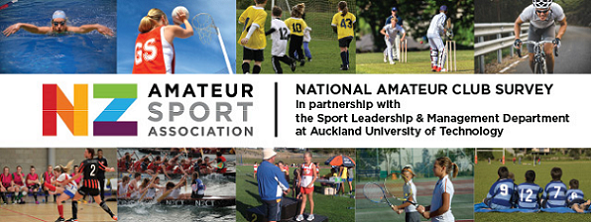
o 11/12 : 1200 : Christchurch : (Commodore Airport Hotel, Memorial Drive)
o 11/12 : 1700 : Dunedin : (Venue To Be Confirmed).
o 12/12 : 1730 : Wellington : (Wellesley Club, Maginnity Street).
o 17/12 : 1200 : Hamilton : (Novotel, Victoria Street).
o 17/12 : 1730 : Auckland : (Venue To Be Confirmed).
To register your attendance, please e-Mail the Association, by clicking here.
If you are a Financial Member of the Association, will receive a full copy of the survey report once published. If you are not currently a Financial Member of the Association, by joining you will be eligible to receive the full report. To apply for Association membership, click here.
Community Sports Clubs And Mental Health ...
In Porirua East (near Wellington), there have been six sudden and tragic deaths since June, mostly of young people. While the causes are the current subject of national discussion, the role of sports-clubs-in-the-community, in terms of promoting mental well-being, is not something that has been mentioned as an important factor in supporting community mental health. Research shows that while so-called social “networks” are booming, real social “contacts” are declining.

A recent European study has shown that being an active member of a sports club has a positive effect upon mental health, by providing young people with meaningful and positive social interactions. The study shows that being an active member of a sports club during adolescence helps to integrate a person into society, "and helps to stop young people from going down the wrong path". Active membership of a sports club also increases a young person's self-confidence, "especially in the case of girls".
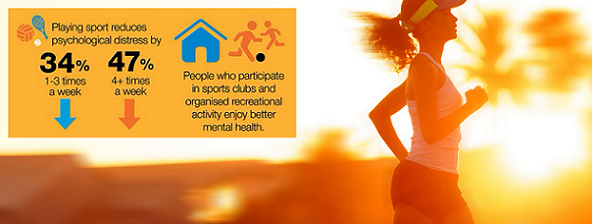
The study, undertaken by the Medical University of Vienna in 2017, observed beneficial health impacts from the social aspect of sports clubs in all age groups and in both genders. As previously suggested, our Government should perhaps devote more time and resource in supporting the role of sports-clubs-in-the-community, as part of increasing New Zealand's social capital. This social investment would have less to do with the promotion of elite performance pathways and more to do with the promotion of sport as means to grow social-well-being.
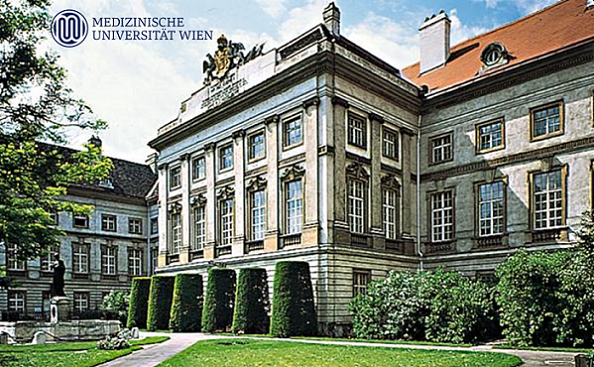
The Association has contacted the Ministers of Sport, and Health, with the objective of raising their awareness of the social good that amateur sports clubs create in our communities.
Armistice Day Sports Celebrations ...
Today (11 November) is Armistice Day, when World War One finally came to a close with the signing of the armistice between Germany and the Allied Powers on 11 November 1918. On the 11th hour of the 11th day of the 11th month, the guns famously fell silent.
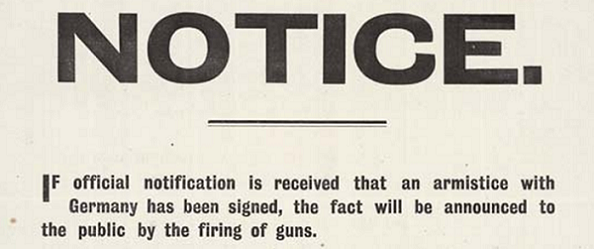
In New Zealand, celebrations of various kinds were held in towns and cities across the country. Of note, sports competitions for children were a feature of the celebratory programme in most parts of the country. While some towns such as Hawera in Taranaki ran a conventional sports programme with prizes awarded for athletic prowess, other centres such as Milton in Otago entertained the crowds with more “novelty” events such as pillow-fighting and blindfold-boxing, while the Levin Borough Council (in the Horowhenua) offered a bun-eating competition for the amusement of local citizens.
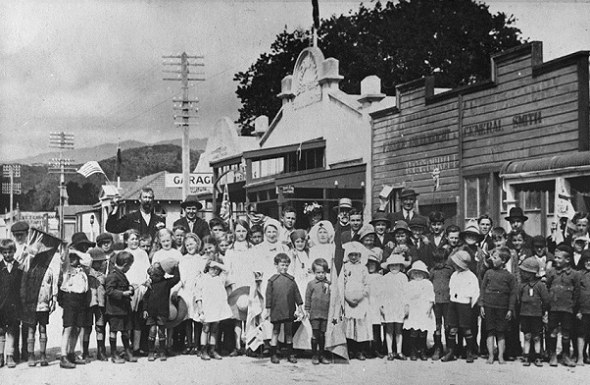
(Upper Hutt children pose for a photo on Main Street, on Armistice Day, 1918)
Sports Facilities Fee Hikes – A Tax On Amateur Sport? ...
In Wales, one County Council is now asking Amateur Sports Clubs who have exclusive use of council-maintained sports facilities, to pay all the costs of maintaining the facilities, or manage them themselves. The Vale of Glamorgan Council says it must make major savings to its annual budget and has highlighted that the fees it charges to Clubs "fall well short" of the costs of maintaining outdoor sports facilities.
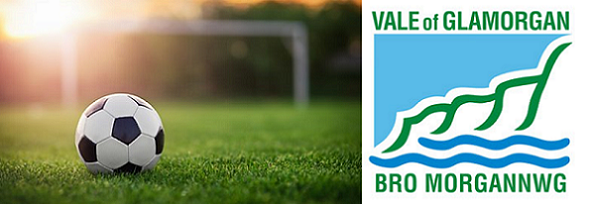
The Council says it is aiming to achieving "a better balance between recovering the actual operating costs and promoting active lifestyles". The move will affect amateur Rugby Union, Football, Cricket and Lawn Bowls clubs in the County.
You can read more about this story, by clicking here.
Safety In Amateur Sport ...
The tragic death of an amateur boxer following a recent charity bout has highlighted the risks associated with participation in contact sports. While the risk of serious injury can never be eliminated where sport involves physical contact, in the current era all sporting codes focus on safety and injury prevention, as a core part of encouraging participation at all levels.
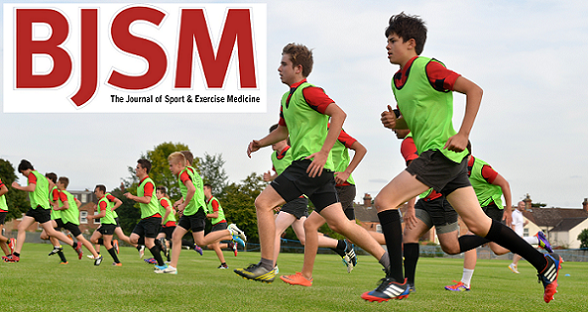
According to a study published in the British Journal of Sports Medicine earlier this year, (based on ACC data), historically Rugby League and Rugby Union have the most moderate-to-serious injury (i.e. requiring medical assistance) entitlement claims, total costs, and the highest mean cost for sporting injury, in New Zealand. Additionally, participants in the over 35 year age group recorded nearly a quarter of the total moderate-to-serious injury entitlement claims and costs in the period surveyed.
Over the 2012-2016 period there were 60,803 "moderate-to-serious" and 597 "serious" injury entitlement claims recorded for the five sports forming the study, (Rugby Union, Rugby League, Cricket, Soccer and Netball). Importantly, the terms ‘moderate-to-serious’ and ‘serious’ do not define the severity classification of the injury, rather they relate to the costs involved with the rehabilitation of the injury. In the period measured by the survey, the cost of sports-related injuries in New Zealand rose to NZ$542 million.
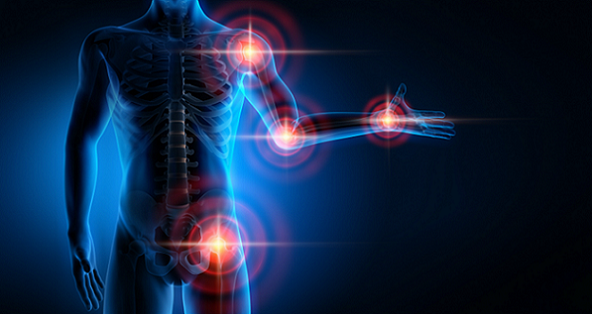
Given the number of registered players in each of the five sports forming part of the study, the perceived risk of injury cannot generally be considered a deterrent to participation. Whether the risk is dismissed outright (“chances are it won’t happen to me”), or accepted (“proper training will prevent me from being injured”), is an area worthy of further research.
From The Archives ...
POPULAR SPORTS ASSOCIATION
LYTTELTON TIMES, VOLUME LXXVI, ISSUE 9510, 4 SEPTEMBER 1891
“A meeting of the Committee of the Popular Sports Association was held in the Municipal Buildings last evening. There was a good attendance of members, and the chair was taken by Mr H. Crooks. The Secretary reported that he had written to fifty-five branches of the different Friendly Societies, asking if they intended to take part in the Anniversary Sports. Of these eight had replied in the negative, eight had stated that they would take part, and no replies had come to hand from the others. Correspondence was read from his Excellency Lord Onslow, conferring his patronage on the Association.”
The Canterbury Popular Sports Association was formed in the 1870s, primarily to organise sporting events for the annual Anniversary Day celebrations, originally held in Latimer Square, before moving to Hagley Park. Over time, efforts were made to incorporate the region's Friendly Societies and Working Men’s Clubs, (who ran their own sporting events for their members). The Association was permitted to operate an annual Art Union Lottery to raise funds for the event.
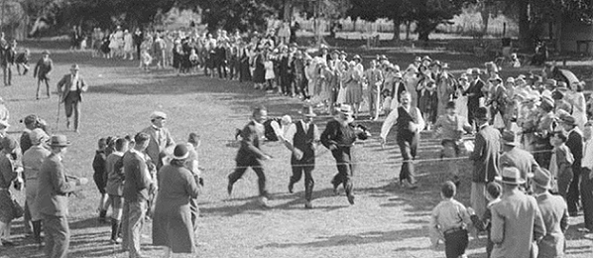
(Friendly Societies, including "the Druids" pictured above, commonly hosted sports events)
By the 1890’s, the Hibernians, Oddfellows, Druids, Buffaloes, Foresters, Working Men’s Clubs, and Fire Brigades were all members of the Association. Among the growing membership was the "International Order of Good Templars", (whose members were part of the of the temperance movement). The Templars put a motion to the Association to stop the sale of liquor at the Anniversary Day sports in 1889, which was not successful.
However following increasing pressure, in 1891 the Association narrowly voted to ban the sale of liquor (via “Publicans Booths”), at the Anniversary Day sports. This proved to be the death knell for the event, which attracted few attendees that year and was never held again.
As one correspondent to the Lyttleton Times noted in relation to the final 1891 event, “it seemed awfully sad last Anniversary Day when the writer went on to the park and saw four little boys running round the track for their own amusement, when on the two previous years there was an estimated attendance of fifteen thousand.”
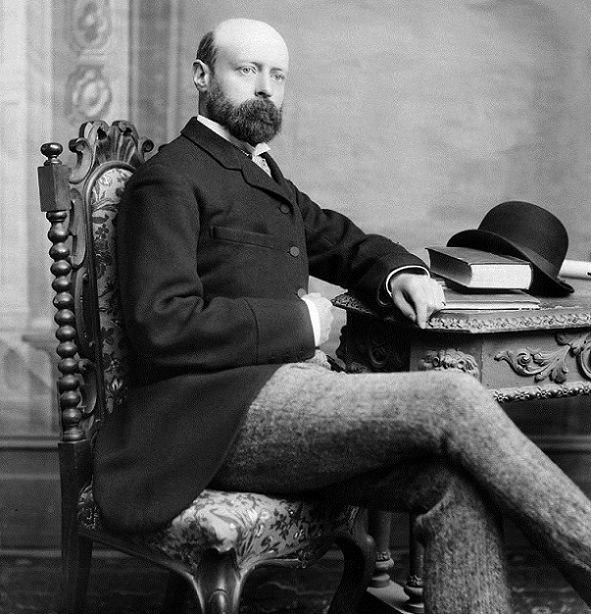
(William Hillier Onslow, 4th Earl of Onslow GCMG PC DL, Patron of the Canterbury PSA)
The Final Word ...
"Those who can, do. Those who can do more, volunteer."
(Unknown)